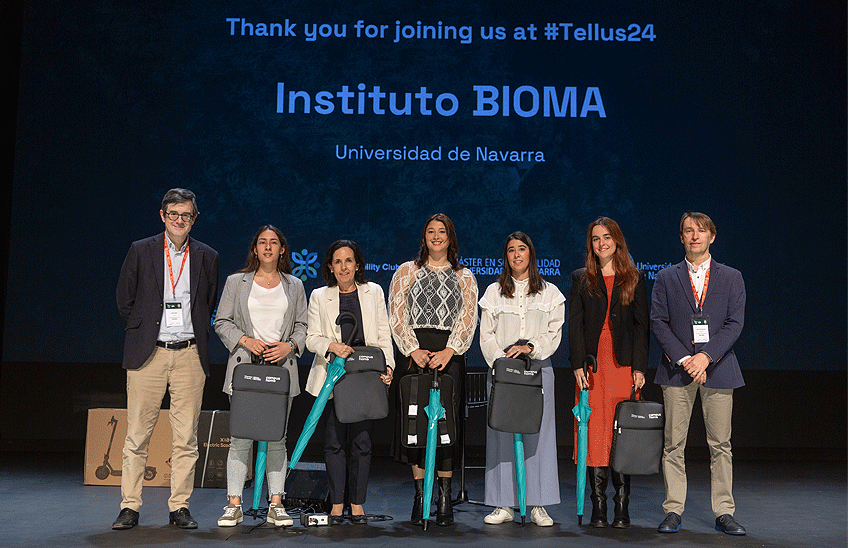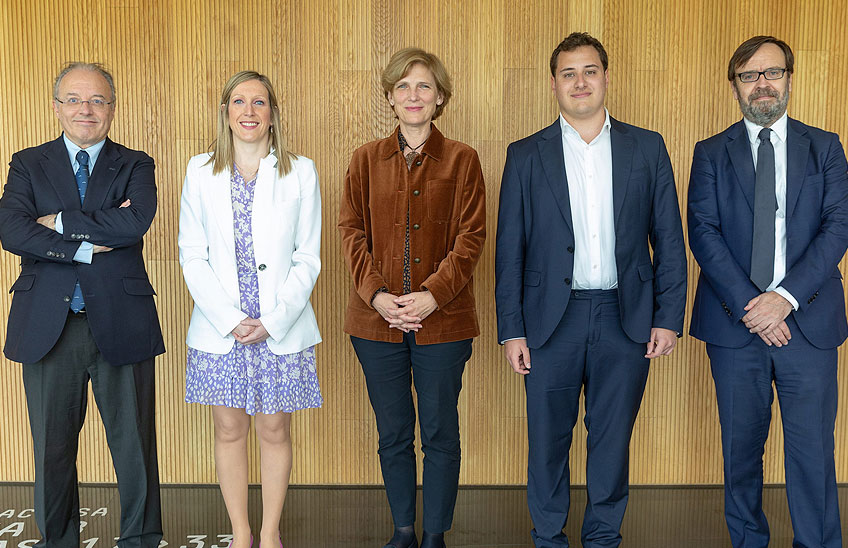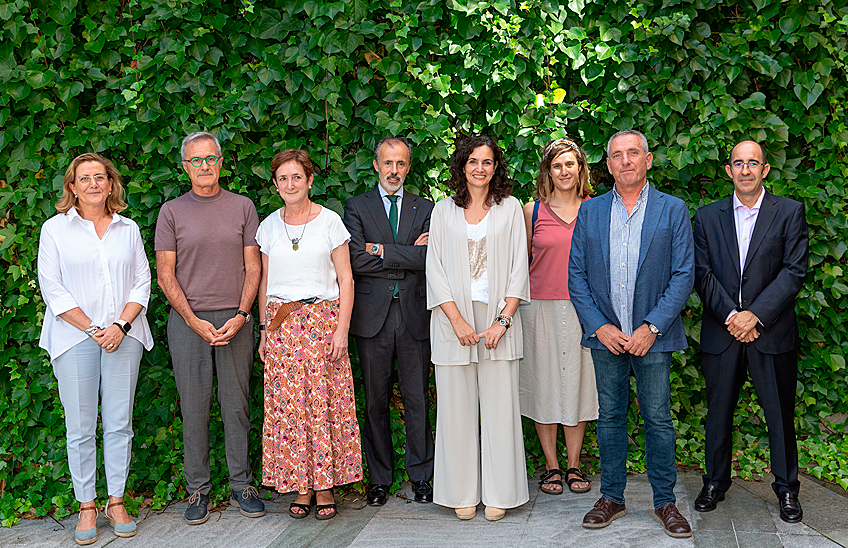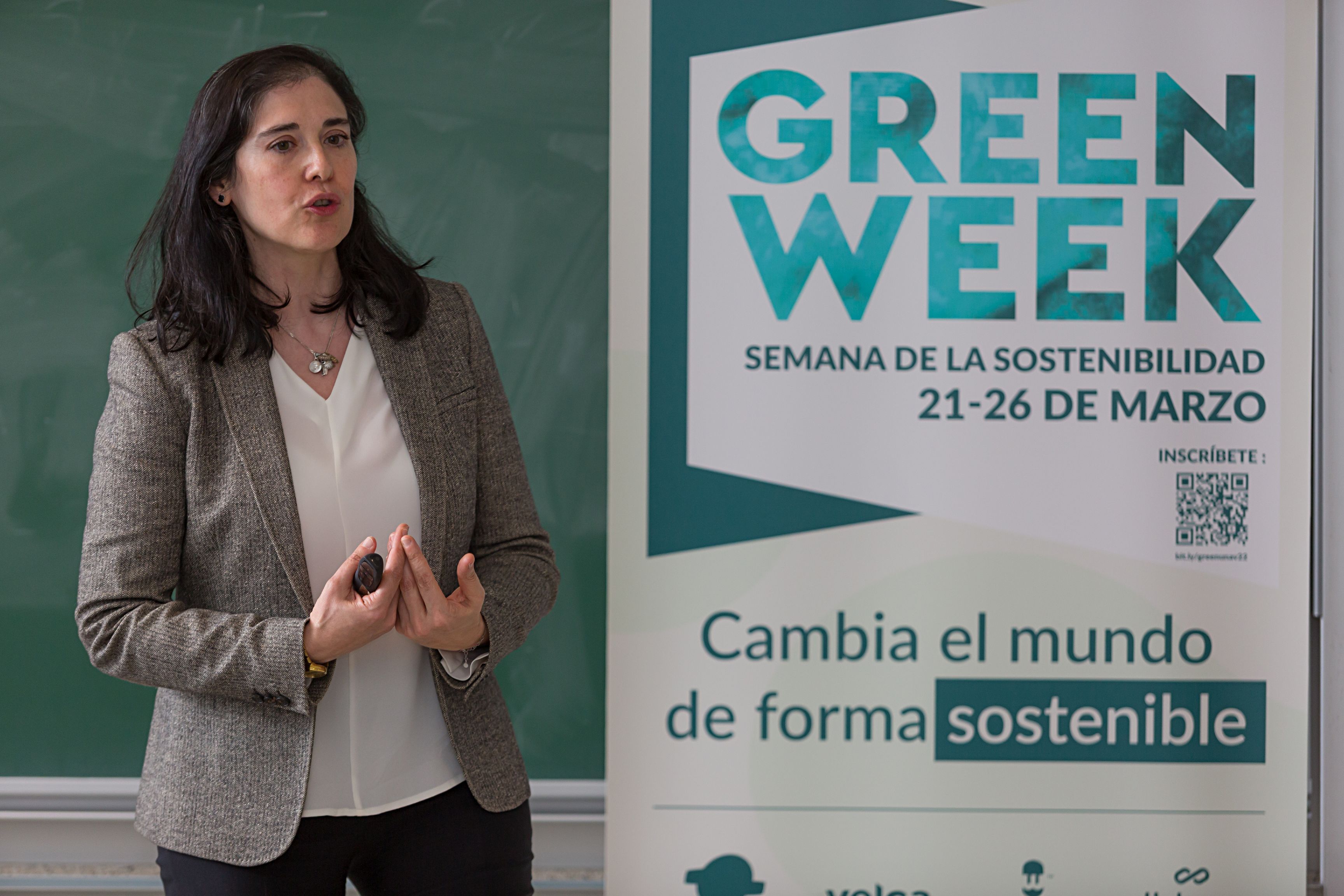"Sustainability and a just energy transition cannot be guaranteed if we do not secure supply and competitiveness".
The CEO of Repsol, Josu Jon Imaz, closed the University's Green Week and stated that the crisis in Ukraine has accelerated the need for a sustainable vision of energy.
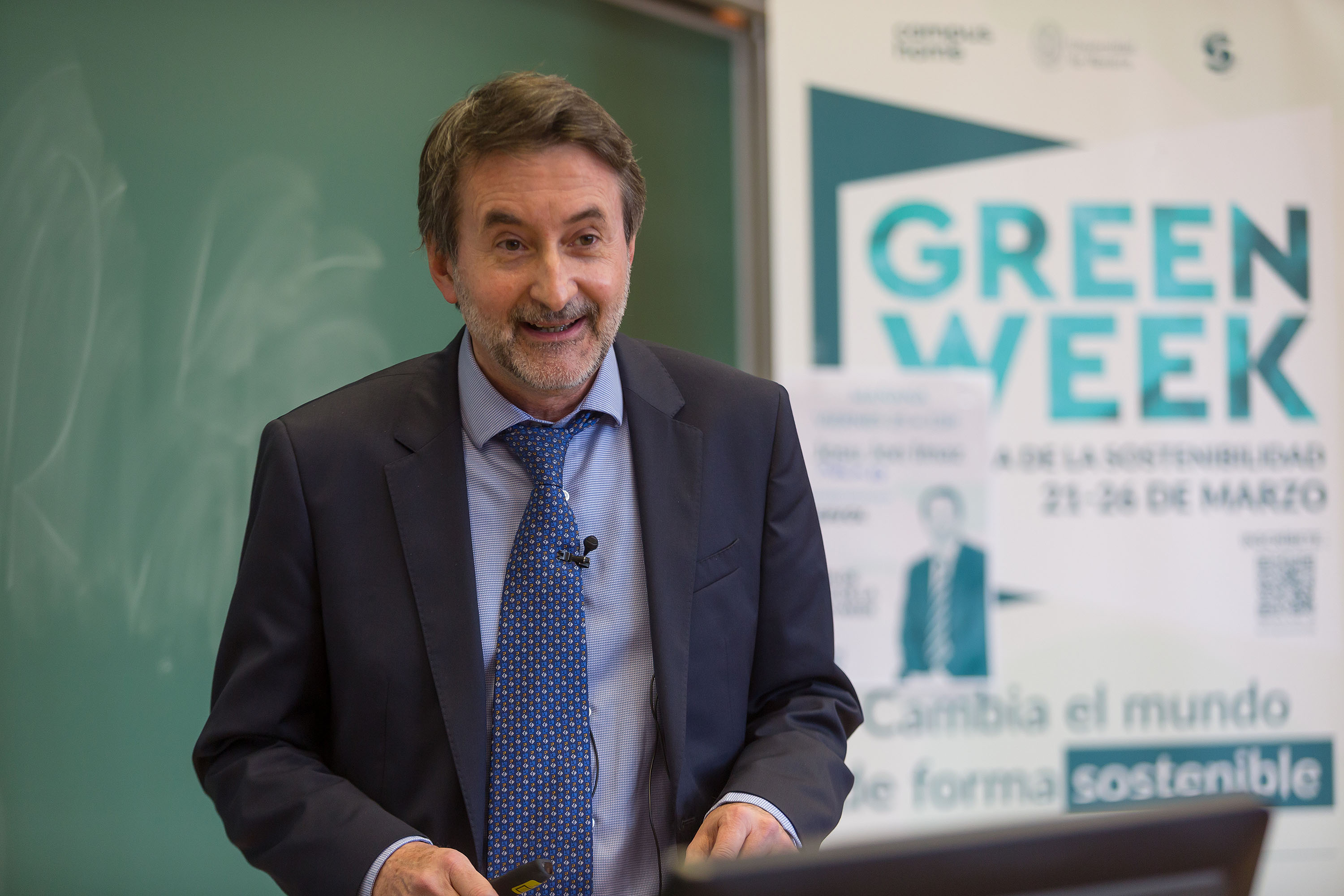
FotoManuelCastells/Repsol's CEO, Josu Jon Imaz, during the lecture he gave at the University on the occasion of the closing of Green Week.
25 | 03 | 2022
" Sustainability and a just energy transition cannot be guaranteed if we do not ensure supply and competitiveness. We must, on moral principles, make it possible for everyone to have access to energy and have a market that generates employment". With these words, the CEO of Repsol, Josu Jon Imaz, gave the closing session of the Green Week, organised by the University of Navarra, at partnership with Campus Home.
Imaz said that the recent conflict between Ukraine and Russia "has accelerated this reflection on the need for a sustainable vision of energy". "We need ambition to reduce CO2 emissions, but we have to make this goal compatible with security of supply and energy at reasonable and competitive prices so that consumers and industries can afford them. For this it is important to design a just transition in which the different energies have to coexist for a few years," he said.
Along these lines, Imaz advocated adopting measures to decarbonise the Economics website and to promote renewables, as well as decarbonising liquids with biofuels, "but also ensuring that we are capable of producing the oil and gas that we will need over the coming years in a reasonable manner and at affordable prices for society", he said.
Josu Jon Imaz regretted that many of the measures that the European Union and international bodies are going to determine now will not take effect for several years. Among others, he cited the adaptation of infrastructures to bring natural gas from Algeria to the Iberian Peninsula or to enable Spain to receive gas from North America at the regasification plants on the Spanish coast. "These are measures that will take a long time and should have been taken two, three or four years ago".
Imaz also insisted on an immediate reform of the market so that not all sources of electricity generation, many of which continue to have low costs, have to charge and invoice the consumer the high price that electricity generated with natural gas is setting. "I believe that a temporary reform, limited in time, so as not to break the principle of legal certainty, is absolutely necessary for consumers and for the competitiveness of industries. We cannot allow that there are people who cannot pay the receipt electricity bill at home and that there are industries that have to stop because they cannot pay their energy costs".
Accompanied by the director of the Chair of Energy Transition Repsol-University of Navarra Foundation, Tomás Gómez Acebo; and the Dean of the School of Law, Jorge Noval, Josu Jon Imaz addressed some of the challenges facing the world to guarantee and sustain the economic development and social balance without mortgaging the future of the next generations so that they can develop their own.
He summarised these challenges in seven key points, which include the aforementioned security of supply; decarbonisation, understood not as electrification but as a commitment to new technologies; finding the most efficient route to reduce tonnes of CO2; and decarbonising hydrocarbons by transforming industrial centres. He also spoke of the global footprint and urged to correct those measures that favour the closure of local producers to end up importing raw materials, whose production is less efficient in terms of energy subject ; of the commitment to circularEconomics and plastic recycling.
In the words of Josu Jon Imaz, this necessary energy transition must be fair, so that its social and territorial impact is minimal and there are no losers, "otherwise there will be many sectors that will be attacked"; and competitive, to achieve a transition based on our industrial and technological capacities and at the lowest possible social cost, "without biases or prejudices of some technologies or energy sources over others. An energy transition in which we are more committed to technology than to ideology", he concluded.

